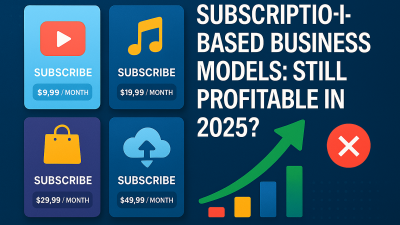In the post-pandemic era, the workplace is no longer defined by office cubicles or 9-to-5 schedules. Instead, a growing number of startups are embracing a remote-first model, prioritizing flexibility, global talent access, and digital-first infrastructure from day one. These remote-first companies aren’t just surviving—they’re winning big on a global scale.
In this blog post, we’ll explore how remote-first startups are reshaping the business landscape, the key advantages they enjoy, and how new founders can thrive in this new world of work.
🌍 What Is a Remote-First Company?
A remote-first company is one that operates primarily online, with remote work as the default—not just a perk. Unlike hybrid models or remote-friendly policies, remote-first startups design all workflows, communications, and culture with remote teams in mind.
Top examples include:
- GitLab (fully remote since inception)
- Zapier
- Buffer
- Toptal
These companies prove that building successful businesses without a centralized HQ is not only possible—it’s often preferable.
🚀 Why Startups Are Going Remote-First in 2025
1. Access to Global Talent
Hiring remotely opens doors to the best talent regardless of geography.
- Lower competition for roles
- Greater diversity in teams
- Access to niche skills across time zones
“Remote-first companies can tap into a 10x larger talent pool compared to those limited by location.” — Owl Labs Remote Work Report
2. Lower Operational Costs
No office rent. No daily utility bills. No in-person overhead.
- Many startups reduce fixed costs by up to 40%
- Remote-first teams invest instead in better tools, benefits, and talent
SEO Keywords: reduce startup costs, remote startup budget
3. Increased Productivity
With asynchronous workflows and deep work time, productivity often increases.
- Tools like Notion, Slack, Trello, Loom, and Zoom help streamline collaboration.
- Managers focus on outcomes—not hours.
4. Employee Satisfaction & Retention
Remote workers report higher job satisfaction due to better work-life balance.
- Flexible hours and location independence = happier, more loyal employees
- Startups benefit from lower churn and higher engagement
5. Built-In Scalability
Remote-first startups can scale quickly into new markets without physical expansion.
- Expand into new regions instantly
- Serve international customers with localized teams
SEO Keywords: remote business scalability, global startup strategy
🛠️ Essential Tools for Remote-First Startup Success
| Function | Tool Examples |
|---|---|
| Communication | Slack, Zoom, Microsoft Teams |
| Project Management | Asana, Trello, ClickUp |
| Documentation | Notion, Confluence, Google Docs |
| Time Zone Sync | World Time Buddy, Clockwise |
| Async Collaboration | Loom, Threads, Twist |
| Culture Building | Donut, Gather, Trivia |
🧠 Challenges of Remote-First (And How to Overcome Them)
| Challenge | Solution |
|---|---|
| Communication Gaps | Emphasize async updates, document everything |
| Loneliness or Burnout | Encourage virtual team bonding & mental health days |
| Onboarding & Culture | Create digital-first onboarding and shared rituals |
| Time Zone Coordination | Default to async work and rotating meeting schedules |
🌟 Real-World Case Study: Zapier
Zapier is a 100% remote-first company with over 800 employees in 30+ countries. It:
- Runs without a central office
- Scales operations through documented processes
- Empowers autonomous teams
- Generates over $100M in annual revenue
Takeaway: Investing in communication, autonomy, and culture enables massive growth—even without a physical HQ.
🧭 How Founders Can Build a Remote-First Company
- Define async as your default. Encourage writing over meetings.
- Invest in your tech stack. Great tools are your new HQ.
- Create a culture of trust. Focus on accountability, not surveillance.
- Document everything. From onboarding to decision-making.
Bonus Tip: Use tools like GitBook or Notion to create a company handbook accessible to all.
✨ Final Thoughts: The Future Is Remote-First
Remote-first startups are no longer the exception—they’re becoming the blueprint. By prioritizing flexibility, digital workflows, and global access, founders in 2025 can build resilient, scalable, and future-proof companies without geographical limits.
Whether you’re starting a SaaS app, an eCommerce brand, or a digital agency, embracing a remote-first mindset could be the key to long-term success.





